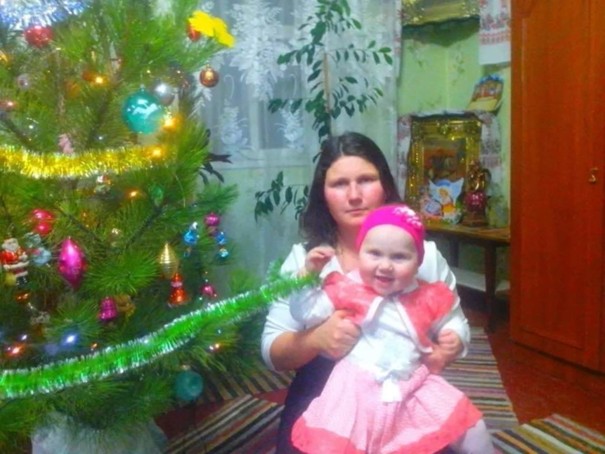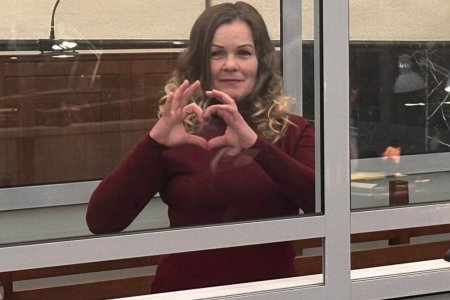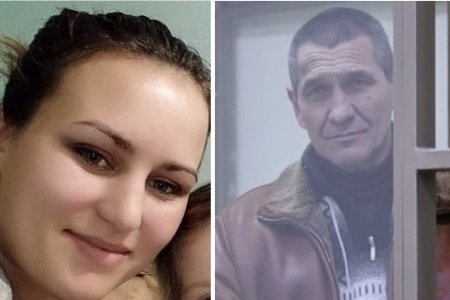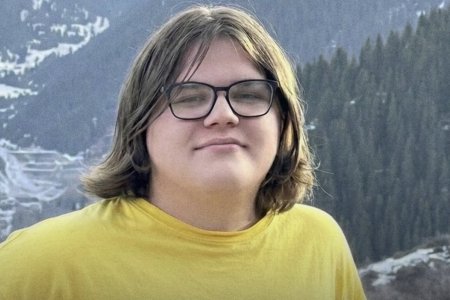
Russia’s Southern District Military Court has sentenced Anastasia Todurova, a 34-year-old mother of four from Donetsk oblast, to 14 years’ imprisonment on ‘terrorism’ and ‘treason’ charges. Disturbingly little is known of a ‘trial’ initiated by the aggressor state which has deprived a young Ukrainian woman living in her own country of her liberty and four young children of their mother. There are, nonetheless, sufficient grounds for the authoritative Memorial Support for Political Prisoners Project to have concluded that Todurova’s prosecution was very likely politically motivated, with the case involving grave infringements of the law. This is in addition to the fact that Russia, as an occupying state, is prohibited by the Geneva Convention from applying its legislation on occupied territory.
Anastasia Todurova (b. 8 May 1990) is from a large village around 25 kilometres from Mariupol. It is unclear even when she was taken prisoner, however Russia added her to its notorious ‘Register of extremists and terrorists’ back on 24 April 2024, which almost certainly means that she has been in custody for a year or longer. The fact that she was charged with ‘state treason’ under Article 275 of Russia’s criminal code means that she has Russian citizenship. This, however, is unsurprising since Russia has made it all but impossible to live on occupied territory without a Russian passport. This is particularly so for a mother, who, without such a passport, would be unable to ensure healthcare for the children. She might well also be threatened with having the children placed in care unless she registered them in school, with this possible only if at least one parent has Russian citizenship.
As well as the preposterous ‘treason’ charge against a Ukrainian living on Ukrainian territory, Todurova was accused of ‘planning a terrorist attack’ (Articles 205 § 2 and 30 § 1; of participation in a ‘terrorist organization’ (Article 205.4 § and of possession, transportation, etc. of explosive devices or substances (Article 222.1 § 4).
There is no information as to what kind of ‘terrorist attack’ the mother of four was alleged to have been planning, nor where, with small children around, she was supposed to have kept explosives. The brutal truth is that none of this matters to Russia. The ‘trial’ itself was, almost certainly, behind closed doors, with it more than likely that Todurova did not have an independent lawyer. Nor would the latter be able to do much as s/he would almost certainly be compelled to sign a non-disclosure undertaking. Russia’s FSB have been notorious, since 2014, for fabricating ‘terrorism’ trials against Ukrainians on occupied territory, with no real proof ever really required of the ‘terrorist attacks’ that the FSB claim to have thwarted. Where the FSB have been unable to prevent Ukrainian political prisoners from having independent lawyers, the latter have provided indisputable proof that the person had an alibi, that any evidence was fabricated, etc. All such proof, as well as evidence of torture, are invariably ignored by the ‘judges’ from the Southern District Military Court in Rostov.
The indictment against Todurova was passed to the court on 10 October 2024, with only three hearings before ‘judge’ Oleg Valerievich Volkov withdrew to prepare the essentially predetermined guilty verdict, read out on 29 January 2025. The 14-year sentence is in a medium-security prison colony (the worst available in the case of women), with Volkov also imposing a steep 500 thousand rouble fine and an 18-month term of restricted liberty after the 14-year sentence. The verdict and sentence can, in principle, be challenged, however the small number of hearings may suggest that Todurova did not have independent legal assistance and that she simply admitted to the charges in the hope of getting a shorter sentence.
While all is supposition, given the lack of information, it has been standard in all areas of Ukraine that came under occupation that Ukrainian civilians are abducted and held incommunicado for some time before their detention is formally acknowledged. Such periods, which can vary from a few days to two years or more, where the person has no access to a proper lawyer or their family, are typically used to extract ‘confessions’. In most cases where the person has later been freed, or at least received an independent lawyer, they have stated that such ‘confessions’ were obtained through torture and / or other forms of duress.



